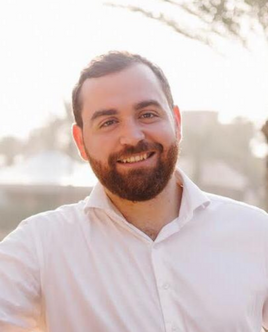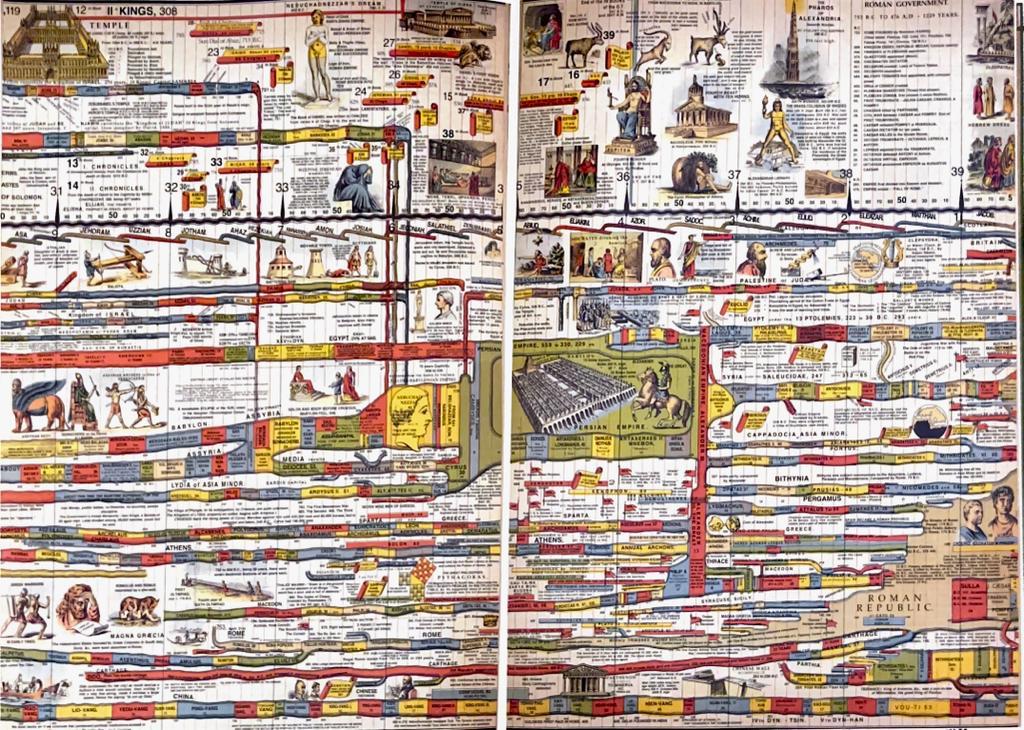My childhood home was full of treasures. I would search through the boxes and collections of magazines. Until one day I discovered a container that seemed to be very precious. Looking inside I found old photos, pictures of people I had never seen before. Every now and then I would see a younger version of my dad or some grizzly looking stranger. Even I made an appearance among these photos. It became clear that these were photos of my family members. Some being very familiar and others not so much.
The moment you became a Christian you were grafted into a family that reaches back 2000 years. Your adoption (Romans 8:15) means, among other things, that you have brothers and sisters who lived during the Roman Empire. This should be very exciting news if you have never thought of it before. We, who are in Christ today, are standing on the shoulders of those who have followed Jesus and have eagerly anticipated his return.
Putting The Pieces Together
It is highly likely that you have been told at some point that just after the Book of Acts the church fell off the face of the earth and has now finally been rediscovered. In fact, entire movements have been built on this premise, including Mormonism and most of what is going on in the charismatic movement. This has resulted in the underdeveloped appreciation of Jesus’ building project (Matthew 16:18) and a desire for some new revelation. Others might have dipped their toes into church history just enough to be confused or intimidated. Thus, it might be useful to have a brief overview of the timeline.
Church History, following on from the Acts of the Apostles, can be divided into four major eras, namely: the Early Church (AD 33 – 450), the Medieval Church (450 – 1450), the Reformation Era (1450 – 1700), and the Modern Church (1700 – present). There is definite overlap between these eras and oversimplification should be avoided, but I have found this outline helpful in grouping significant events together.
New and Old Treasures
Fellow saint, it is necessary to know that you and your local church are not the first generation to crack open the Bible. This fact should produce a profound humility in our hearts as we approach the faith once for all delivered to the saints (Jude 3). The study of church history also reveals blind spots that we might have in our own day. By reflecting on the Christians of the past, we are served with a good dose of theological antibodies against heresy and bad teaching.
This is important because increasingly the need to come up with something new and novel has become fashionable within certain Christian circles. We must always understand that Christianity has been with us for thousands of years. Our Christian forefathers have been looking into exact same things we speak of in our day. Therefore, when we hear anything that claims to be new, we must verify it against the Bible first and foremost and also check if this has been the position of Bible-believing Christians throughout the ages.
One of my favorite meals is Cape hake and chips, the only thing is, one must be careful to remove the fish bones first. You don’t want them stuck in your throat. Sometimes studying church history can be like that: it’s an amazing dish, just be attentive. Remember, all teaching must be held captive to Scripture (John 17:17). With that said, by familiarizing yourself with church history you are opening up a real treasure that the Lord has given us. Like a master of a house, who brings out of his treasure what is new and what is old (Matthew 13:52).
Our African Heritage
Northern Africa is home to some of the greatest early Christian leaders. Allow me to introduce you to a handful of notable characters:
Tertullian (AD 160 – 225), the first great Christian writer in the Latin language was a native of Carthage, in modern day Tunisia. He provided the church with deep reflections on the relationship between Christianity and the Roman Empire, proper moral behavior of Christians, and most notably he was the first Christian writer to use the word “Trinity”. In reflecting on the incarnation, he wrote,
“But we see in Christ two forms of being, not confused with each other, but joined together in one person, Jesus, who is both God and man. And the proper nature of each substance keeps its own full reality.”
Cyprian of Carthage (200 – 258), born into a wealthy family and upon conversion, gave his entire fortune away to the poor. Cyprian had a total commitment to the unity of the church and the importance of church membership. He said, “Whoever stands apart from the church and is joined to an adulteress is cut off from the promises given to Christ’s Church. ”When facing his execution for leading people away from paganism to faith in Jesus, he cried, “Thanks be to God!”
Athanasius of Alexandria (296-373), serving as a deacon at the time of the Council of Nicaea, he distinguished himself as a firm defender of the deity of Christ. He would go on to become a key figure in Christian thought. He stood ‘contra mundum’, i.e., ‘against the world’, as many were following the Arian heresy. Athanasius is an example of not going along with popular opinion (1 John 4:1-6).
Augustine of Hippo (354 – 430), considered to be the greatest theologian to arise since the apostle Paul. A powerful and bright mind, positioned in just the right time in history to counter the Pelagian heresy. Augustine penned several great Christian works: Confessions, On the Trinity, and City of God. These works have been influential throughout the ages. In his commentary on John 15:16, Augustine writes, “You did not choose Me,” Christ says, “but I chose you”.
Such grace is beyond description. What were we, apart from Christ’s choice of us, when we were empty of love? What were we but sinful and lost? We did not lead Him to choose us by believing in Him; for if Christ choose people who already believed, then we chose Him before He chose us. How then could He say, “You did not choose Me,” unless His mercy came before our faith?”
Since we are surrounded by so great a cloud of witness, my prayer is that you open the family album that the Lord has so graciously given us.
Author
-

Michael is married to Claudia and they have a son and a daughter. He is a member at Evangelical Community Church, Abu Dhabi and is an English teacher at a local Emirati school.


Excellent! A great entree to dig into Church History and see the treasures that are there.
Also a really helpful reminder, especially to our generation on the importance of those who have gone before us.
This Article is an eye opener.. thank you so much for sharing this rare message…
Humbling, brilliant article Michael